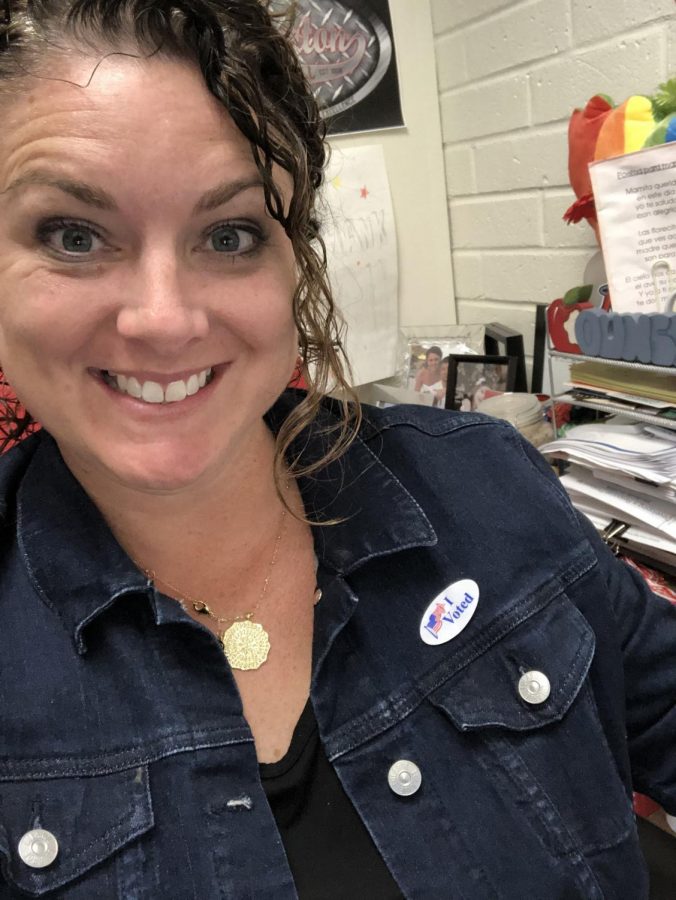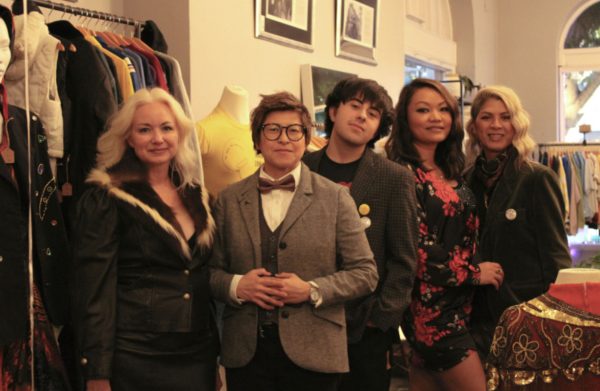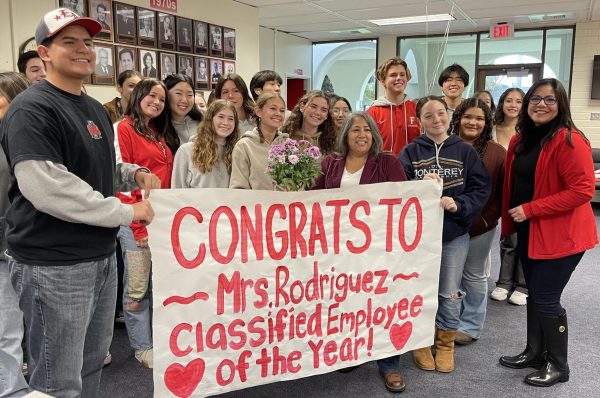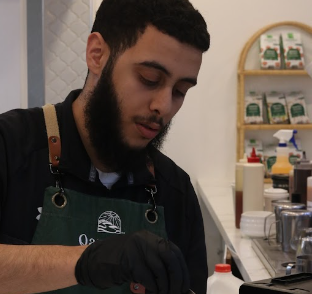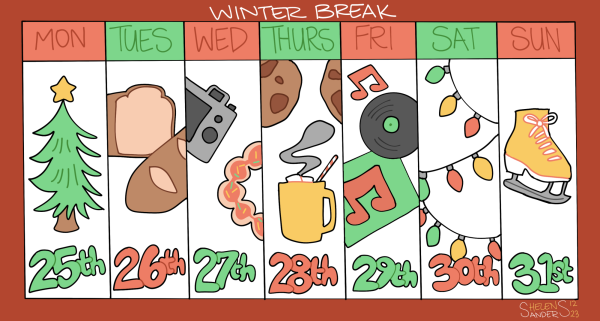FUHS counselors expand outreach
Counselor Erin Defries is more concerned when her phone doesn’t ring. She knows that students are struggling, but it’s difficult for her to help when they don’t reach out.
Despite not being able to meet with students in person, the FUHS counselors have expanded their outreach during quarantine through social media and google voice.
Corresponding with Mental Health Awareness Week Oct. 4-10, the district promoted a variety of mental help resources. Students have access to various degrees of help from a stress-relieving coloring page on the Virtual Calming Room to professional mental health consultants through CareSolace.
Following is a recent Tribe Tribune interview with Erin Defries.
What is your most significant challenge during this time?
It’s very challenging I think for the four of us to reach all of our students because we have emails and that’s it. If we really want to talk to you guys, we’re getting a parent, and then we are tracking you down and then we are trying to set up a zoom, so I think the biggest challenge is reaching who we need to reach.
What challenges do you face once you do reach students who need help?
Well we set up a zoom meeting and we are talking to kid’s one on one and yeah I see your face but it’s hard because you miss that whole body language and that human connection. So while we could still talk and have a good conversation, it’s challenging to do everything from a distance.
How can students best reach you if they need help or have a question?
The four of us have google voice, so it’s easy to get a hold of us. We want you guys to treat it as if we were at school. If you had a question at school, you would just come up and ask us, so just text us or email us and ask us.
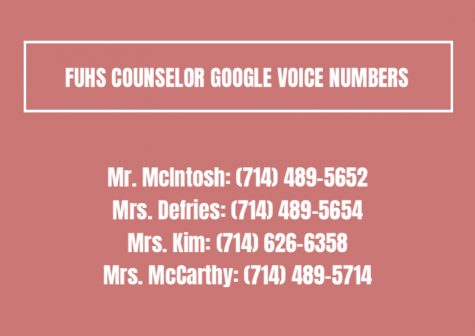
Is google voice working for you?
Yes! I actually like the google voice because well I feel more accessible. I understand that you guys operate on different time schedules, so I wanna be able to answer your questions whenever it pops up. It seems to me you respond more through text messages, so I like being able to reach you guys If I have questions. Last year I had some seniors that were really struggling–and this was before I had the google voice–and they were not responding to my emails. I just gave up and emailed them my cell phone number and I said “I need to talk to you,” and within seconds they had texted me. I think there’s just like a comfort set that you guys have with texting.
How have student challenges changed since the beginning of quarantine?
When it started everybody was like “oh that’s cool like we’re home” and then as it stretched it became more like “oh crap this is still happening.” So last year there was more of an emotional piece like “I miss my friends, I miss being at school, I miss talking to people.” Now I think everybody is kinda used to it, and I feel like the biggest issue right now is okay “we’re still distant, this still sucks, i’m still struggling, but now I have a normal workload.”
What are the levels of help that students have access to?
The first touch would be with us. The next step would be something called CareSolace. CareSolace is like a mental health concierge. You click through a process and somebody from CareSolace connects you with somebody to address your needs outside the school environment. The two therapists we talked about last year are actually on our school site, but that would be like the last tier. That would be for a student who is really in need of that support and needs it at the school as opposed to having to go somewhere else.
How do you decide what kind of help a student needs?
There’s a lot of pieces that will come into play. For example, access to resources; maybe a family that is lower income and struggling to meet basic needs. They might not have the resources and financial ability to go through CareSolace and get a therapist, counselor, or support group because that’s gonna cost money. So that’s where we have this in place. It’s also for those more–I don’t want to say extreme mental health cases–but a student who is clearly at a clinical level and needs help with depression, anxiety, self harm. It’s for somebody who really needs that deep deep help.
Once we start hybrid learning, will students be able to talk to the therapists on campus?
When we go to hybrid, the therapists have an actual classroom that they share. I think that space is big enough that a student can be face-to-face with the actual licensed therapist that will be on campus. In the meantime, it’s all going to be more of a zoom thing.
What kinds of issues are students facing due to COVID-19?
We have a lot of families with food insecurity because a parent lost a job, so we’re connecting people with those kinds of resources. And then, obviously, families that are dealing with a family member being ill from coronavirus. There’s a lot of fear that comes when family members and students get sick.
How is distance learning affecting students’ grades and productivity?
Think about when you’re in class and your teacher tells everybody to pass up their homework from last night. You have that awareness like “oh crap I didn’t do my homework, everybody’s going to think I’m a giant loser” whereas you don’t have that with distance learning. It’s easier to hide.
How has distance learning affected the teachers’ mental health?
The teachers want to make a connection with their students, and it’s hard. Imagine you’re a teacher and you’re lecturing, and you can look out at everybody’s face and like kinda gage “oh they’re all dying this is the most boring thing ever” or “they all look completely lost I need to back up.” Well they don’t have that through zoom when cameras are off.
Do you think that students should turn their cameras on during zoom classes?
I don’t know I’m very torn about that because I wanna see all your cute little faces, but then I get it. You don’t wanna be on camera and some people don’t like looking at themselves. Maybe you’re embarrassed by your living situation or something. I get that. On the other hand, though, it makes it hard for teachers.
How do you know what students need your help if they don’t reach out to you?
Teachers have helped connect us with students that we might not know need help. For example, Mrs. Perez has a check-in question, so sometimes she’ll say “hey this kid said they were having a rough day” and then I reach out to them, but I don’t have their cell phone numbers, so I can email them or call home. A lot of times, I don’t want to call home. I don’t want to say “Hey this is Defries. I’m your student’s counselor. They told their science teacher they were having a rough day. Can I talk to them?” The parent might be at work and freak out and drive home, or who knows? They might get mad at their kid for telling someone they’re having a bad day.
Why do you think students talk to their teachers but haven’t been reaching out to you quite as much as you expected?
You see your teachers every single day, but you might not think to reach out to us. On campus we’re out at lunch, and you see us and you know we’re in the office. But now maybe you guys don’t think of it because we’re not in front of your face.
Do students have to have parent permission to receive mental help at school?
Anything beyond the four of us the parent has to consent and have to sign some paperwork. It can be a total roadblock, usually because a student is afraid to ask. I haven’t had any parent straight up say no, but another counselor has.
Do you have anything else you’d like to add?
Just that your counselors are still here! We can zoom, we have google meets, we can text. I’m stuck with my dog and my 9-year-old all day. When a student emails me asking me to meet I’m like “Yes! When? Right now? Please hurry!” We do this job because we love you guys and we love teenagers and we want to be able to help you. Use us!

